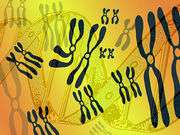(HealthDay)—For women with early-stage breast cancer, the impact of receipt of the 21-gene recurrence score (RS) assay varies with patient age, according to a study published online Nov. 23 in the Journal of Clinical Oncology.
Andrew J. Epstein, Ph.D., from the Philadelphia Veterans Affairs Medical Center, and colleagues used data from the Pennsylvania Cancer Registry to examine the correlations between RS assay receipt, subsequent chemotherapy use, and medical expenditures. Data were included for 7,287 women with early-stage breast cancer who underwent initial surgical treatment.
The researchers observed marked variations in the associations for RS receipt and outcome with patient age. In women younger than 55 years, RS use correlated with lower chemotherapy use (19.2 percent lower). Among women aged 75 to 84 years, RS use correlated with higher chemotherapy use (5.7 percent higher). Among women younger than 55 years, RS receipt correlated with lower adjusted one-year medical spending ($15,333 lower), while higher spending was seen for women aged 75 to 84 years ($3,489 higher).
"From a population perspective, the impact of RS testing on breast cancer treatment and health care costs is much greater in younger women," the authors write.
Several authors disclosed financial ties to the pharmaceutical, biotechnology, and health insurance industries.
More information:
Abstract
Full Text (subscription or payment may be required)
Journal information: Journal of Clinical Oncology
Copyright © 2015 HealthDay. All rights reserved.























